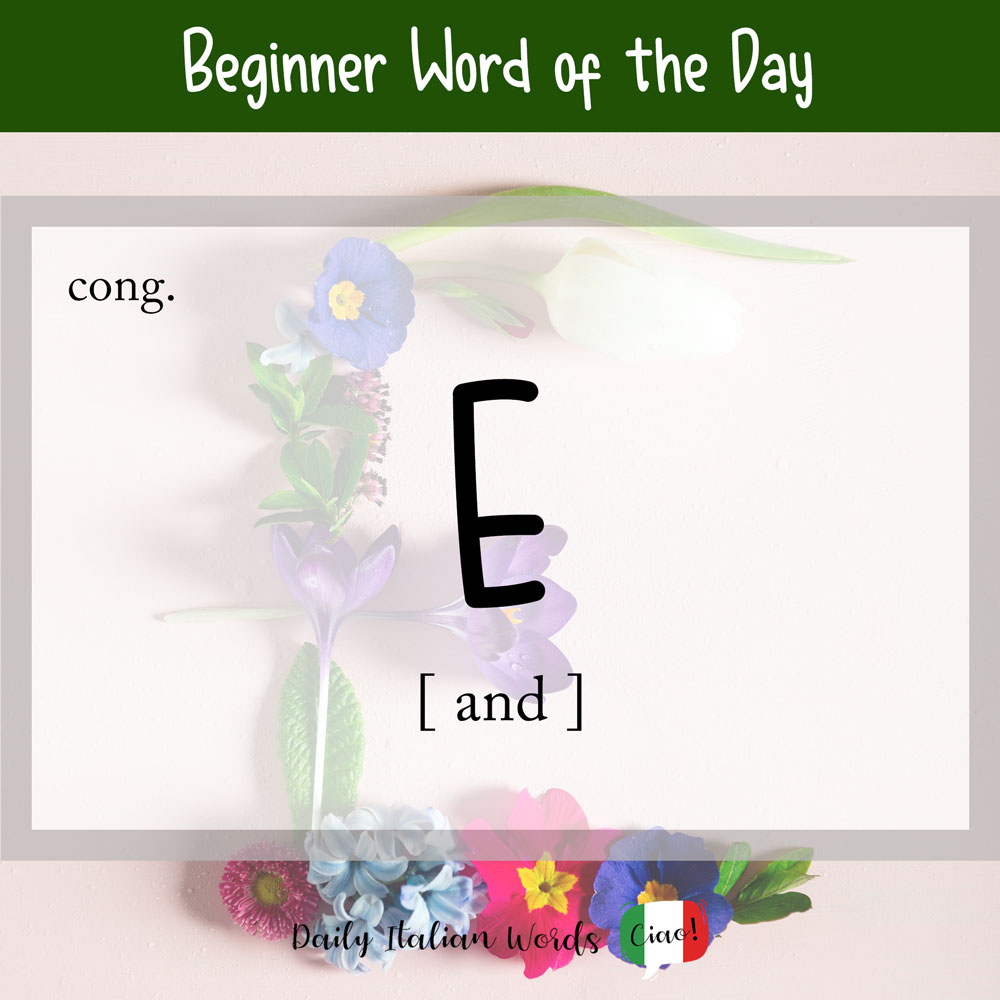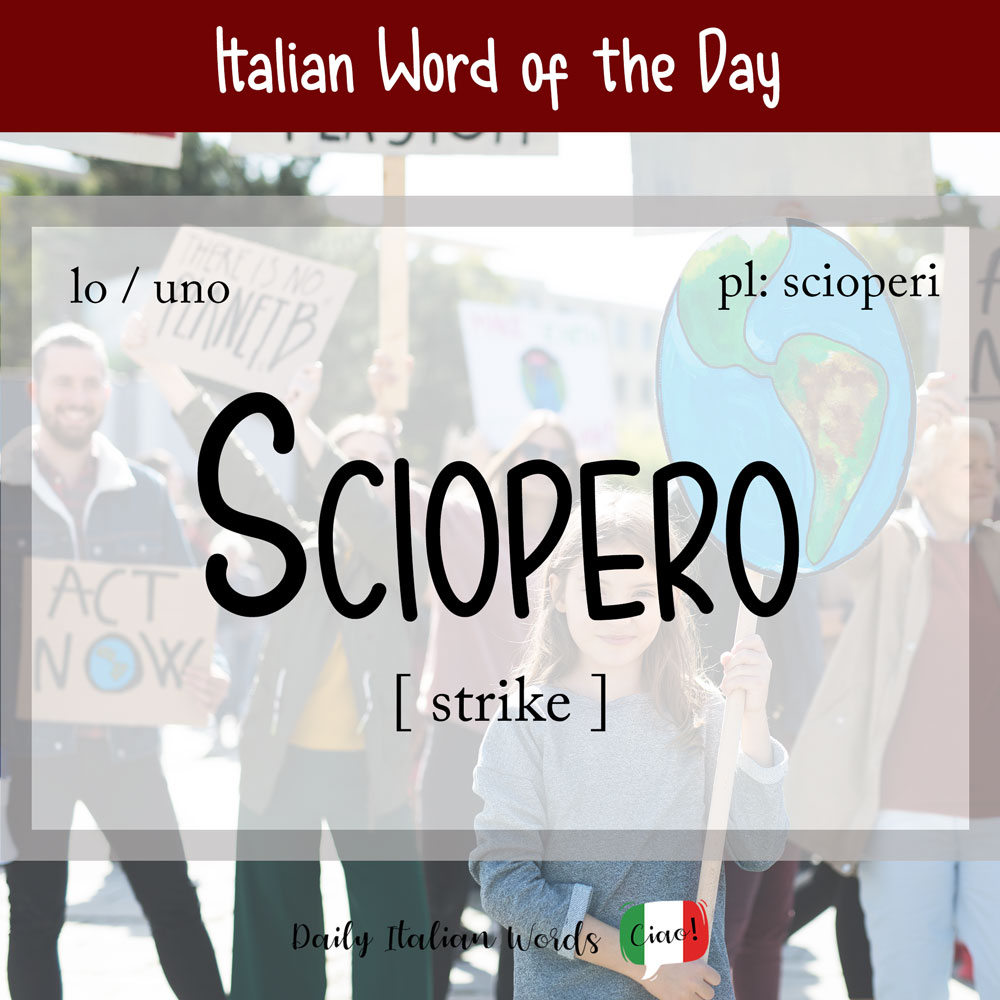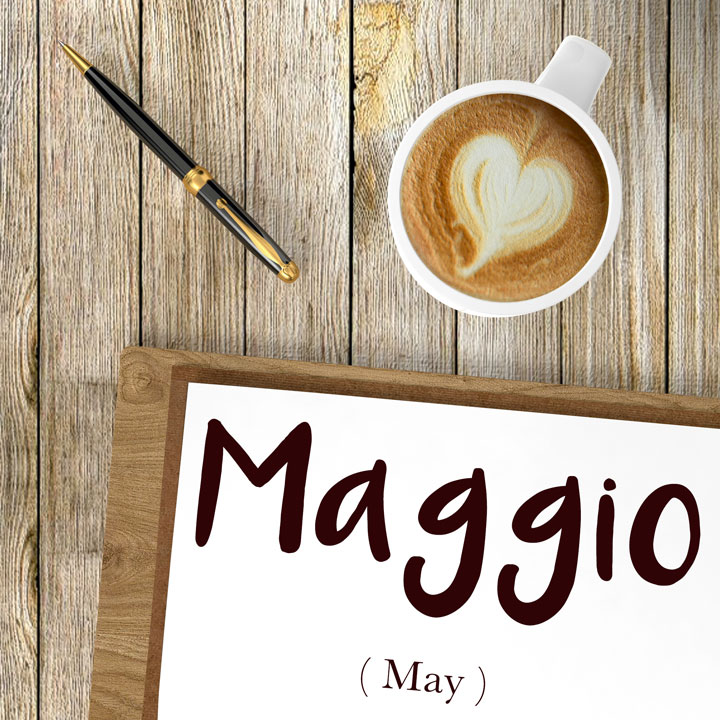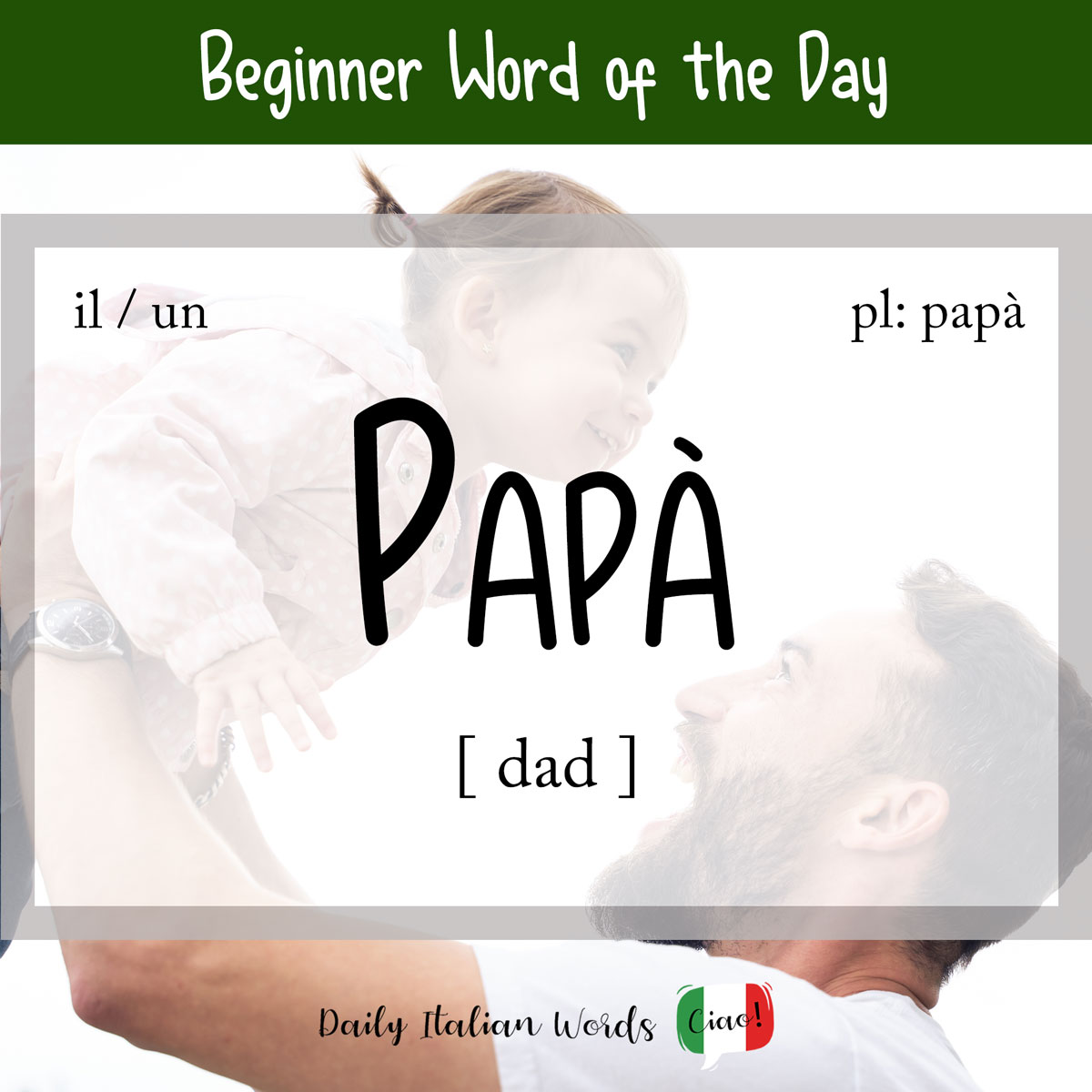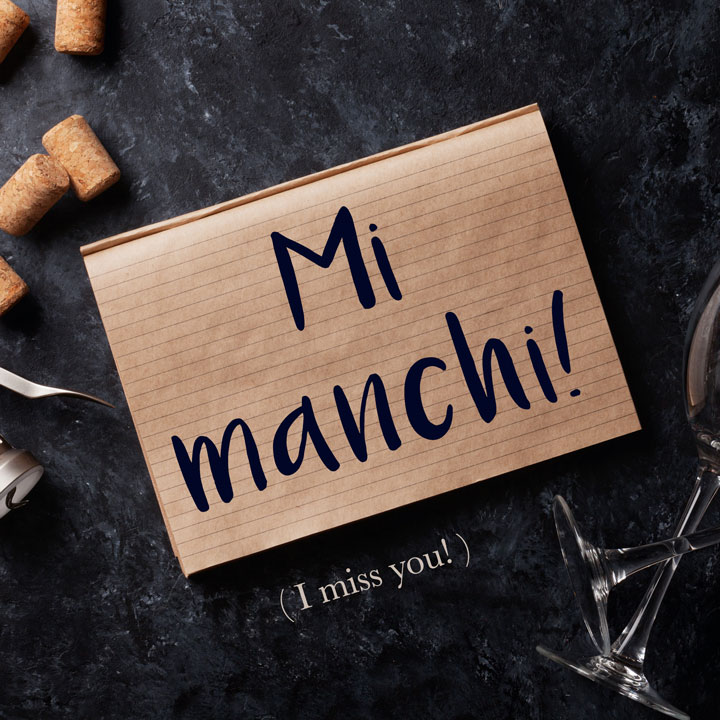How to Say “And” in Italian – E
Today we’re going to be talking about a very short yet extremely important word in Italian: e which means and. Just as in English, e can join two nouns, verbs, adjectives, adverbs or sentences. Ho guardato un film e poi sono andato a letto. I watched a film and then I went to bed. Similarly …

